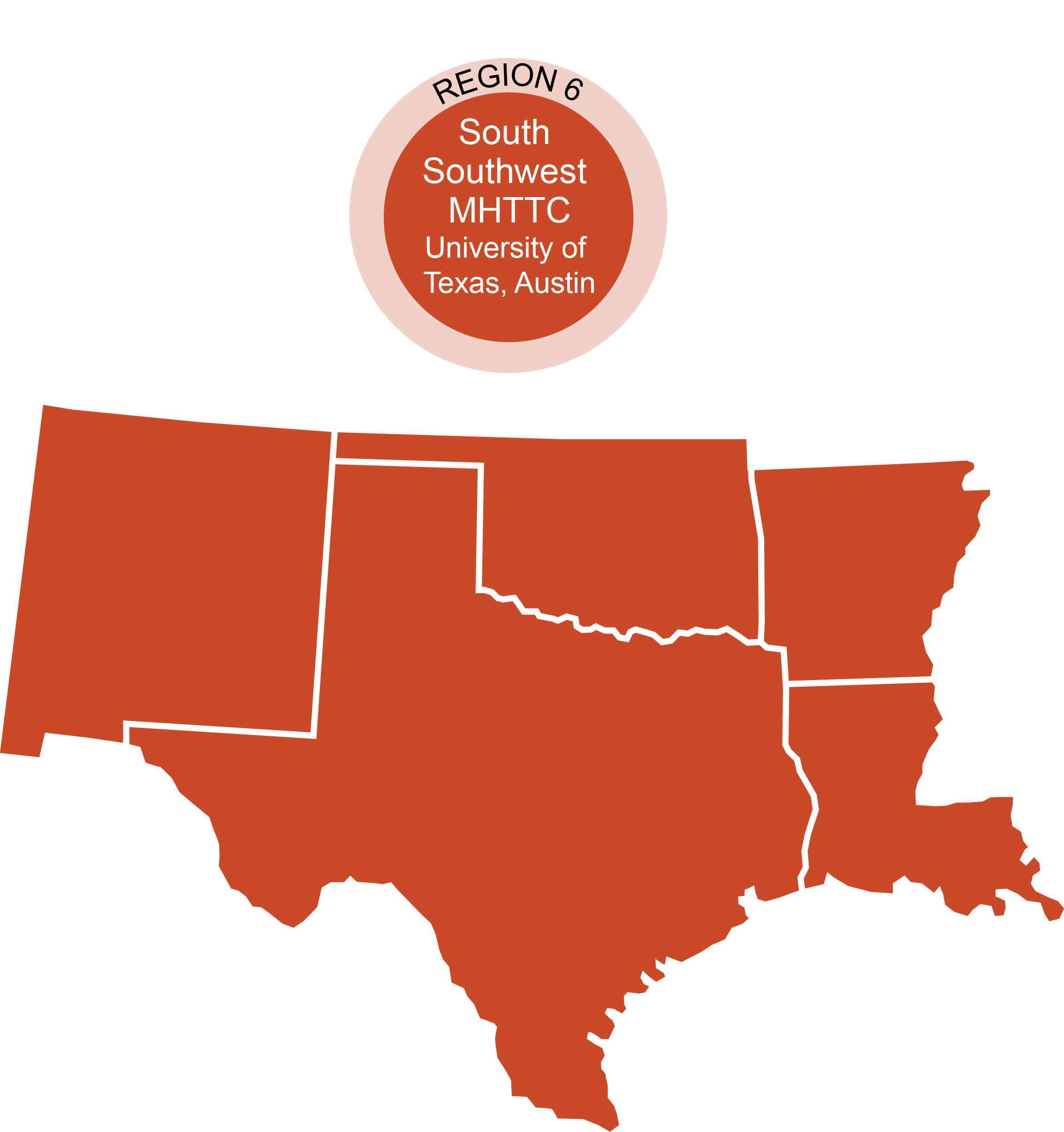Home > Region 6 MIC Story: Individual Placement and Supports (IPS) in First Episode Psychosis

MIC Stories (MHTTCs Implementing Change) feature technical assistance projects that had a significant impact on practice.
Employment in a meaningful job is a key component of life for most adults, but for people with serious mental illness, there are many barriers to finding and maintaining employment. Individual Placement and Support (IPS) is an evidence-based model of supported employment for individuals with serious mental illness. Programs that implement IPS can see doubled rates of competitive employment from those that do not use IPS, and result in shorter time to first job, greater job satisfaction, higher earnings, and more consistent work hours (Bond et al., 2020).
Over the past year, the South Southwest MHTTC hosted a First Episode Psychosis (FEP) conference for the region, provided intensive training and skills development in the Structured Interview for Psychosis Risk Syndromes (SIPS), and hosts monthly peer-to-peer networking and sharing calls with regional FEP teams to further support best practice in Coordinated Specialty Care. One need that arose from these team calls was training and coaching support in IPS.
The South Southwest MHTTC partnered with Thresholds to provide intensive technical assistance on IPS for FEP Coordinated Specialty Care teams to better support the educational and career goals of the people they serve. While most staff had some training and skills in IPS, they identified a need for further skill development in applying the model to youth and young adults.
The South Southwest MHTTC serves U.S. Department of Health and Human Services Region 6, including Arkansas, Louisiana, New Mexico, Oklahoma, and Texas. Participants representing 14 community mental health centers from Region 6 are participating. Organizations and participants were self-selected to receive this training and coaching. Disciplines include Supported Employment and Education Specialists (SEES) and their staff.

This intensive project is scheduled for 15 months, including the following components:
Thus far we have seen some challenges related to the typical changes necessary to organizational processes to support the implementation of IPS. As participants further implement IPS within their teams and organizations, obstacles will be documented.
As community mental health centers develop coordinated specialty care with FEP teams, they identify areas the team needs to improve for people in services to achieve their life goals.
Next steps for this project are to continue the coaching and then mentoring calls, track the progress of participants in implementing the practice, and gather success stories and lessons learned from participants.
Potential implications for the field may be a better understanding of IPS implementation by SEES staff within Coordinated Specialty Care teams in organizations. In addition to determining if this practice change results in better outcomes for the individuals served.
Bond, G. R., Drake, R. E., & Becker, D. R. (2020). An update on Individual Placement and Support. World Psychiatry, 19, 390-391.

The South Southwest MHTTC, funded by the Substance Abuse and Mental Health Services Administration, is housed in the Texas Institute for Excellence in Mental Health at University of Texas at Austin. The South Southwest MHTTC serves U.S. Department of Health and Human Services Region 6, including Arkansas, Louisiana, New Mexico, Oklahoma, and Texas. The Center's population of focus is mental health clinicians, supervisors, and program managers serving individuals with or at risk of serious emotional disturbances (SED) or severe mental illness (SMI); peer support providers; community mental health, health, or peer-run organizations; and single state agency administrators focused on comprehensive state public mental health systems.